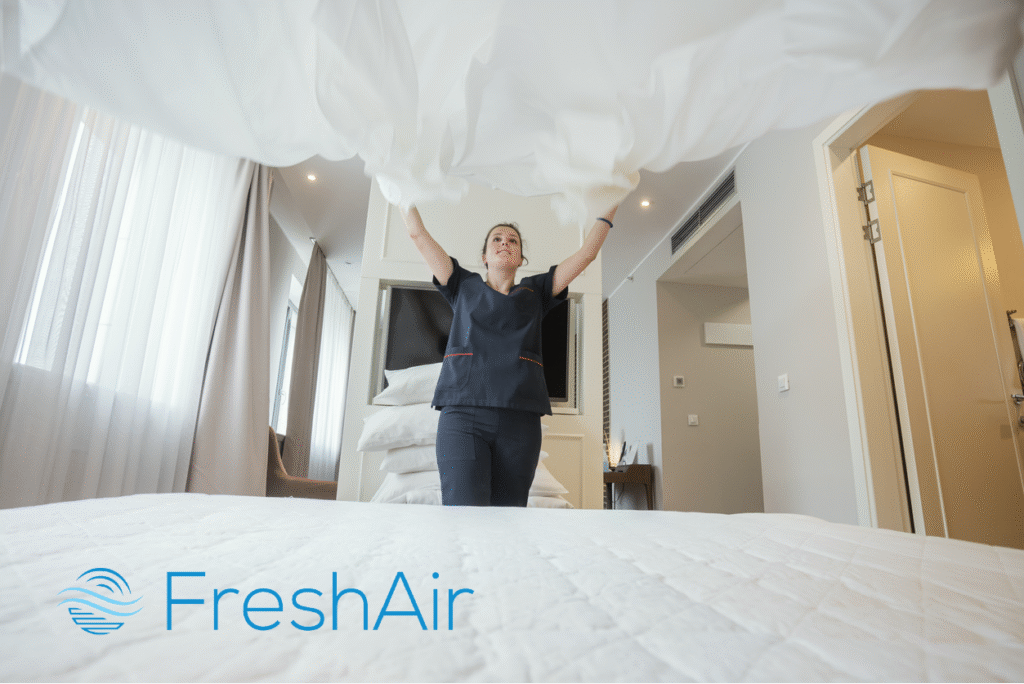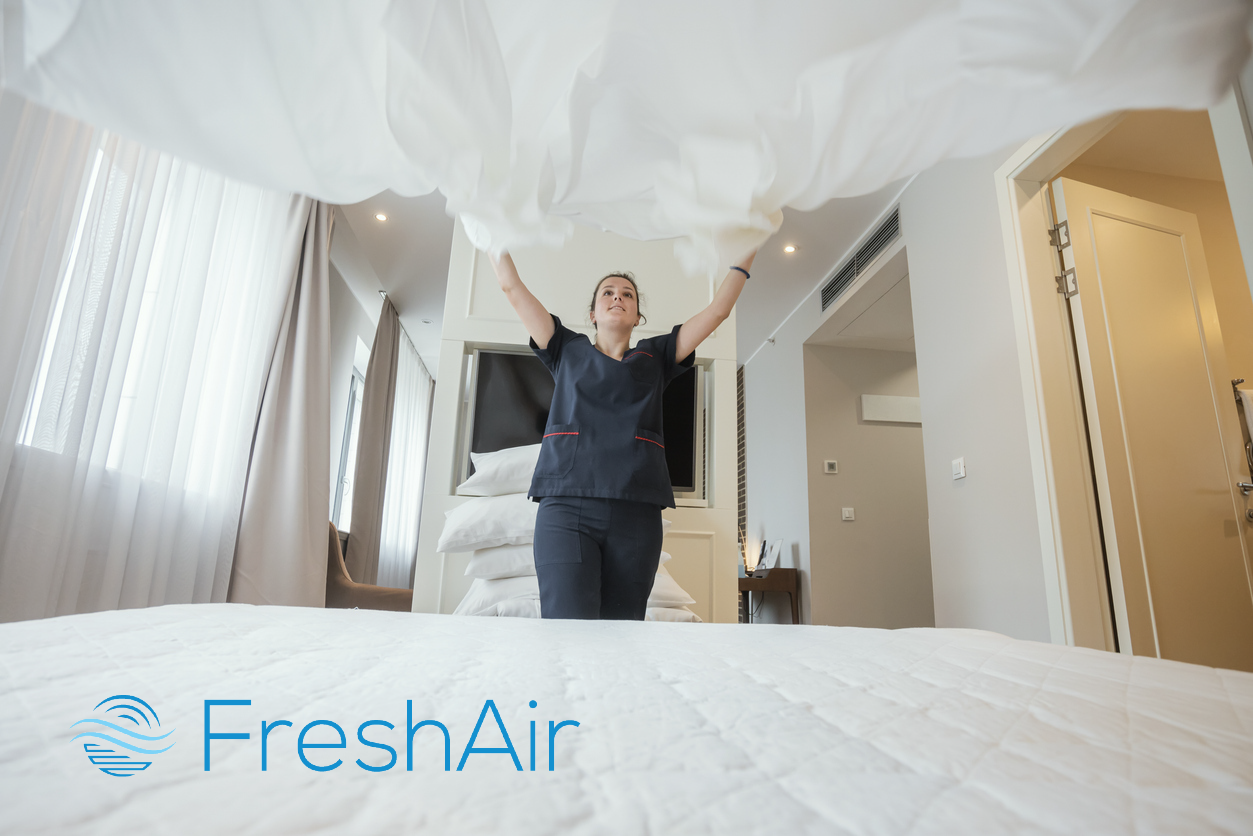In hospitality, “cleanliness” has always been non-negotiable—yet there’s a frontier too often overlooked: indoor air quality (IAQ). As guest expectations evolve, odors, smoke, and stale air are becoming deal breakers. Hotels that meet this frontier are differentiating, reducing hidden costs, and unlocking new revenue streams.
Why IAQ Matters in Guest Experience
- According to a recent FreshAir Sensor survey, 80% of travelers report being disrupted by odors, and over 90% want a guarantee that their room hasn’t experienced a smoking event before arrival. PRWeb
- In that same survey, more than 60% of respondents said they’d pay a 3% premium for that guarantee. PRWeb
- AHLA’s 2024 State of the Industry report emphasizes that guest room cleanliness, property cleanliness, and friendly staff are essential to positive experiences and brand reputation. HOTELSMag.com+1
- Odor complaints, particularly from smoking or residual smells, are among the most-cited negative guest feedback categories—eroding loyalty, undermining reviews, and undermining brand promises.
Put simply: the air guests breathe is part of your product. If it feels “off,” it undermines everything else.
The Hidden Cost of Each Smoking Incident
Unauthorized smoking may seem like a “small” infraction—but the financial impact is anything but small:
- FreshAir Sensor’s Cost of Smoking study reveals that cleaning, remediation, damage, and reputation impacts combine to make each incident expensive. Fresh Air Sensor
- In many hospitality contexts, a single smoking event can cost up to ~$1,000 in damages, re-cleaning, downtime, and compensations. Facilitiesnet+2hotelbusiness.com+2
- According to FreshAir’s infographic breakdown, 62.3% of the added cost comes from reputation and guest impact, 26.6% from property damage, and 5.4% from lost revenue. Fresh Air Sensor
- In multiple hotel case studies (e.g. Treasure Bay, Bally’s), after implementing FreshAir Sensor, properties moved from losing chargebacks to winning them routinely—and the system “paid for itself” through recovered cost and fewer complaints. CleanLink+1
Those aren’t theoretical costs—they are real line items on your P&L, waiting to be mitigated.
How Hoteliers Can Meet Guest Expectations
To reach “the final frontier of clean,” operators must go beyond surface cleaning. Here’s how:
- Molecular-Level Smoke Detection
FreshAir Sensor devices detect cigarettes, e-cigarettes, and marijuana at the molecular level. Because they sense specific combustion byproducts, they provide time-stamped, tamper-resistant evidence of smoking events. - Real-Time Alerts & Enforcement
The moment a violation occurs, operators receive alerts—allowing onsite response while the guest is still present. That means you can enforce policy, apply charges, or relocate guests before the damage compounds. - Long-Term IAQ Monitoring & Trends
Devices continuously monitor air for signs of humidity, residual volatile compounds, and odor precursors. Over time, you build a baseline “clean air fingerprint” and can detect deviations early, mitigating costs before they balloon. - Guest-Facing Guarantees & Differentiation
Use IAQ data to make new promises—e.g. “this room has been certified smoke-free” or “this room has been monitored for odors in the past 72 hours.” Programs like FreshAir Certified let you monetize that promise, packaging it into a premium upsell or loyalty feature. PRWeb - Operational Integration & Reporting
Dashboards, audit trails, and reports let you spot hot zones (i.e. rooms with repeat violations), feed insights to housekeeping or engineering, and make policy adjustments grounded in data.
The ROI Equation: Clean Air = Less Cost + More Revenue
Here’s what happens when you bridge the gap between guest expectation and operational reality:
| Impact Area | Before (No Monitoring) | After (With FreshAir Sensor) |
| Unauthorized Smoking Incidents | High and unmanaged | Significant reduction or deterrence |
| Chargeback Success Rate | Low (lack of proof) | High (time-stamped data) |
| Cleaning & Remediation Costs | Reactive, costly | Preventive, reduced |
| Guest Complaints & Rebook Rate | Higher complaint fallout | Fewer complaints, stronger reviews |
| Upsell / Premium Air Product Revenue | None | Incremental revenue from certified rooms |
Many properties recover the cost of the sensor and monitoring within months—through a combination of reduced damage spend and fees collected. After that, it’s upside.
Conclusion
The frontier is there—and it’s within reach. Hotels that treat air quality as a core guest experience will win on loyalty, reviews, and profits.
If you’re ready to see how this works on your property—with live data, ROI examples, and monitoring benchmarks, Schedule a Demo of FreshAir Sensor’s powerful IAQ monitoring solution now.


